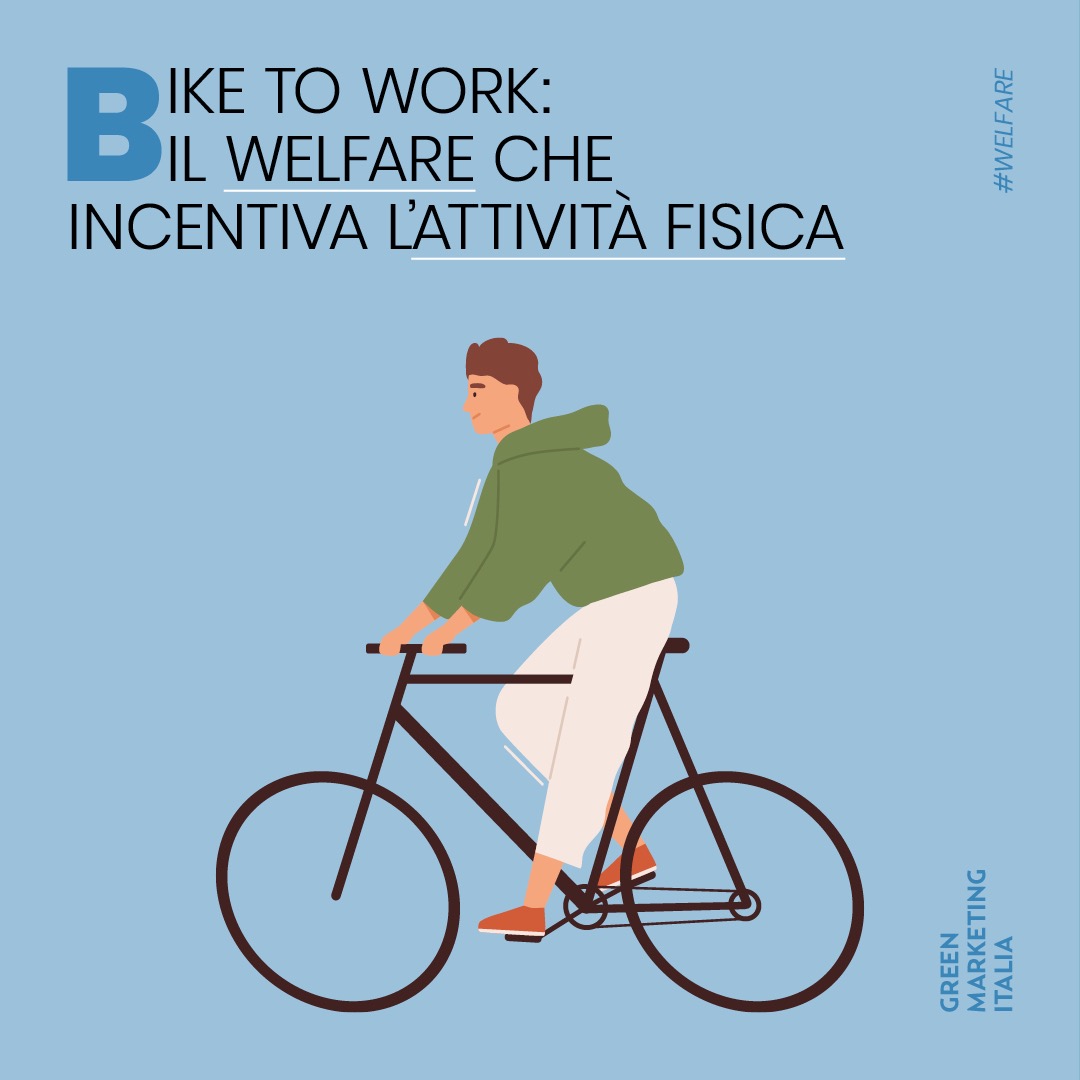Being responsible companies means acting in an ethical and inclusive manner on several fronts.
The various areas concern all corporate stakeholders, from suppliers to customers, from employees to banks: and related actions are based on methodologies that respect the environment and ensure quality and safety.
For example, welfare does not only mean rewards and permits, as it was in the past. Today it increasingly concerns the psycho-physical well-being of the employee and focuses on human resources, protecting their health.
Among the projects that combine welfare and environmental protection there is the incentive for home-work transfer by bicycle or on foot. This initiative generates several benefits such as:
- Saving money;
- Health improvement, since go to work by bike compensate for the sedentary lifestyle;
- Decrease in traffic and pollution.
Here you are some concrete examples.
Bike to Work project, Emilia Romagna
The Emilia-Romagna Region considers the protection of air quality a priority, with an important impact on the health of citizens and the environment. This is why it has decided to promote sustainable mobility by proposing different solutions to encourage citizens and municipalities to use bicycles.
The region has allocated a contribution to 194 municipalities to support road safety investments. The goal is to create cycle paths and routes and make extra resources available for non – ordinary repairs. It has also created push scooter and bike sharing services for companies and citizens, information campaigns on cycling destinations and awareness-raising initiatives on conscious mobility. Finally, it pays € 0.20 / km for a maximum of € 50 at the end of the month to those who go to work by bicycle or scooter.
There is also a similar project in Belgium where about 400 thousand users are taking advantage of the incentives of € 0.23 / km for those who go to work with green transports. In total, over 420 million km were traveled by bicycle in 2015, bringing benefits in terms of CO2 and traffic reduction.
However, the incentives do not come only from municipalities or regions. The JobRad project in Germany, for example, allows company employees to save up to 40% on the purchase of a bike or to rent it at a discounted price, directly scalable from their salary. The benefits of the leasing program are concrete for everyone: the company offers a benefit to its workers, improving its corporate image and the health of its employees.
Initiatives in Italy
In Italy there is no national policy on bike to work. However the Italian Federation of Friends of the Bicycle (FIAB) in 2017 launched the Love to Ride Italia project, a national challenge that rewards those who ride the most kilometers in the city. From 16 September to 27 November 2017, 12,799 people, 763 companies and associations and 1,607 new cyclists who covered over 5,162,000 km in total challenged each other.
AT YOUR APP
To reward citizens and employees who choose to travel in a sustainable way, several apps have been developed.
WeCity, for example, rewards those who go to work by bike through incentive and gamification programs.
Cycle2Work, instead, shows a dashboard with the total kilometers traveled, the CO2 saved and any refund earned.
A NEW WELFARE
New frontiers of welfare that did not exist until a few years ago become instead a criterion for evaluating the company itself. The protection of human resources today is increasingly a priority for choosing the company in which you want to work and grow.
Therefore, being a responsible company, which pays attention to the well-being of human resources, allows an enterprise to attract talents and retain them.

